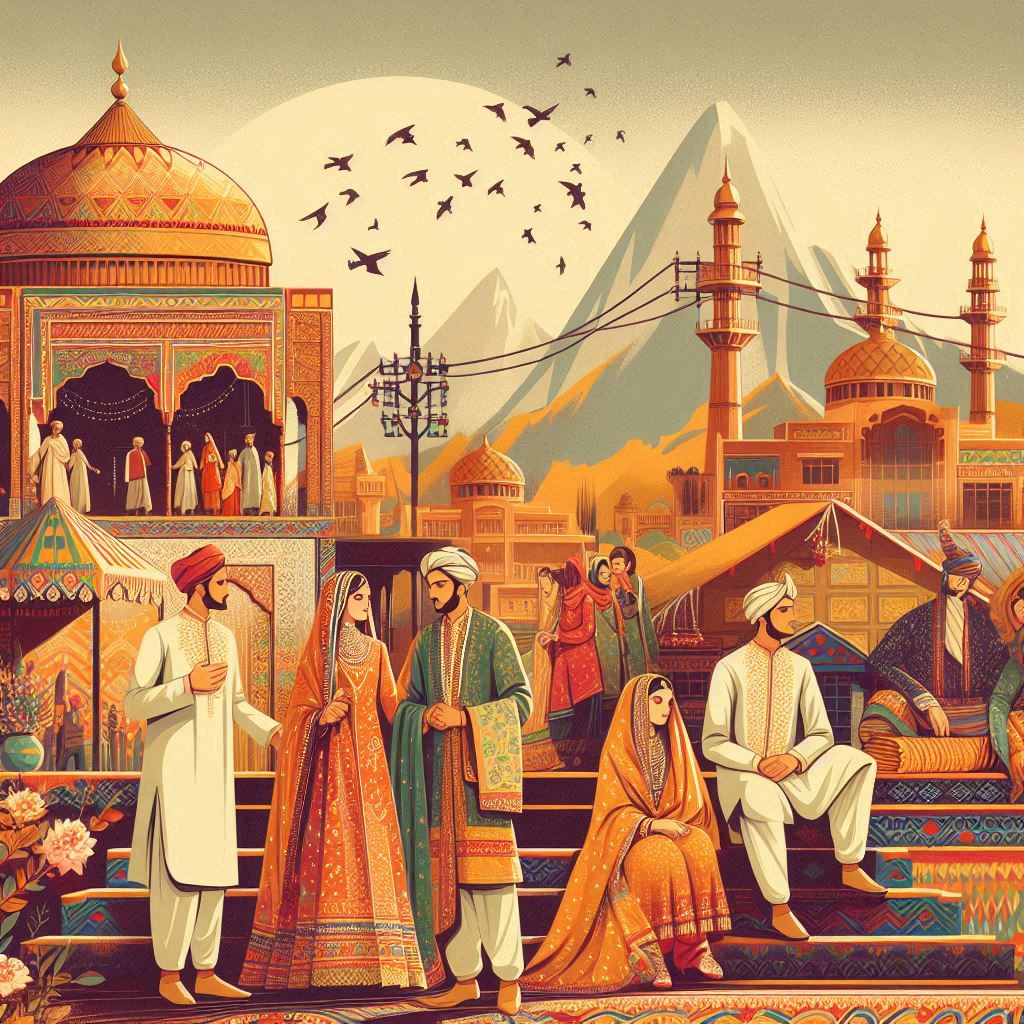While studying overseas, I often encountered curiosity and sometimes even judgment about the practice of cousin marriages in Pakistan. Many people from other cultures, particularly those with strong religious backgrounds, found the concept perplexing, even sinful. This sparked in me a desire to delve deeper into the reasons behind this prevalent practice in my homeland.
It’s true that cousin marriages are not unique to Pakistan. They occur in various parts of the world, including the Middle East, parts of Africa, and even within some communities in the West. However, the prevalence in Pakistan is notably high, with estimates suggesting that over 60% of marriages are consanguineous (between blood relatives). This stems from a complex interplay of historical, social, religious, and economic factors that have shaped the cultural landscape of the country.
Historical and Tribal Roots
Long before the arrival of Islam in the Indian subcontinent, the region was dominated by tribal societies. These societies emphasised kinship ties and loyalty to one’s clan. Marriages within the extended family served to consolidate power, maintain tribal alliances, and ensure the continuity of lineage. Furthermore, it was a practical way to preserve land ownership and wealth within the family, preventing fragmentation through inheritance across different families. These deeply ingrained practices have left a lasting impact on Pakistani society, contributing to the persistence of cousin marriages even today.
Islamic Influence and Interpretation
While Islam permits cousin marriages, it is crucial to understand that it doesn’t explicitly encourage them. The Quran does not prohibit marriage between cousins, and the Prophet Muhammad himself married his cousin Zaynab-Binte-Jahsh. However, this historical example is often misinterpreted as an endorsement of the practice. Islamic scholars emphasise that the permissibility of cousin marriage should not be equated with its promotion. The ideal, as many argue, is to marry outside the family to broaden social ties and strengthen community bonds.
Colonial Legacy and the Continuity of Tradition
British colonial rule in India, which included present-day Pakistan, played a significant role in solidifying existing social structures. The British adopted a policy of non-interference in personal matters like marriage, allowing traditional practices to continue unchallenged. This inadvertently reinforced the prevalence of cousin marriages, embedding them further into the social fabric of the region.
Social and Cultural Dynamics
Several social and cultural factors contribute to the persistence of cousin marriages in Pakistan. The concept of family honor (izzat) is paramount, and marrying within the family is seen as a way to safeguard a woman’s reputation and ensure her well-being. It is believed that a girl will be treated with respect and care within her own family, minimising the risk of mistreatment or neglect. Additionally, cousin marriages are often favoured in arranged marriage settings, as families feel more comfortable entrusting their daughters to relatives they know and trust. This reinforces social cohesion and strengthens familial bonds.
Economic Considerations
Economic factors also play a crucial role in the prevalence of cousin marriages. Marrying within the family can reduce the financial burden associated with weddings, as dowry and other expenses are often negotiated more leniently among relatives. Furthermore, it can help prevent the division of inherited property among different families, ensuring economic stability for future generations.
Regional Variations and Evolving Trends
While cousin marriages are common throughout Pakistan, their prevalence varies across different regions and ethnic groups. They are more common in rural areas and among communities with strong tribal traditions, such as the Pashtuns, Baloch, and Punjabis. In urban areas, however, increasing education levels and exposure to different cultures are gradually shifting attitudes towards marriage. Many young people are now opting for marriages based on love and compatibility rather than solely on familial ties.
Conclusion
The practice of cousin marriages in Pakistan is a complex issue with deep historical, social, religious, and economic roots. It is not simply a matter of religious doctrine but a reflection of deeply ingrained cultural norms and practical considerations. While modernisation and education are slowly leading to a shift in attitudes, cousin marriages remain a significant part of Pakistani society. It is crucial to understand the multifaceted reasons behind this practice, moving beyond simplistic judgments and engaging in nuanced conversations about its implications.
It is important to note that while cousin marriages are culturally accepted, there are growing concerns about the potential health risks associated with them. Consanguineous marriages can increase the likelihood of genetic disorders in offspring. Raising awareness about these risks and promoting genetic counselling can help families make informed decisions about marriage choices.
Ultimately, the decision to marry a cousin or not rests with individuals and families. As Pakistan continues to evolve, it is likely that attitudes towards marriage will continue to shift, reflecting a complex interplay between tradition, modernity, and individual choice.



